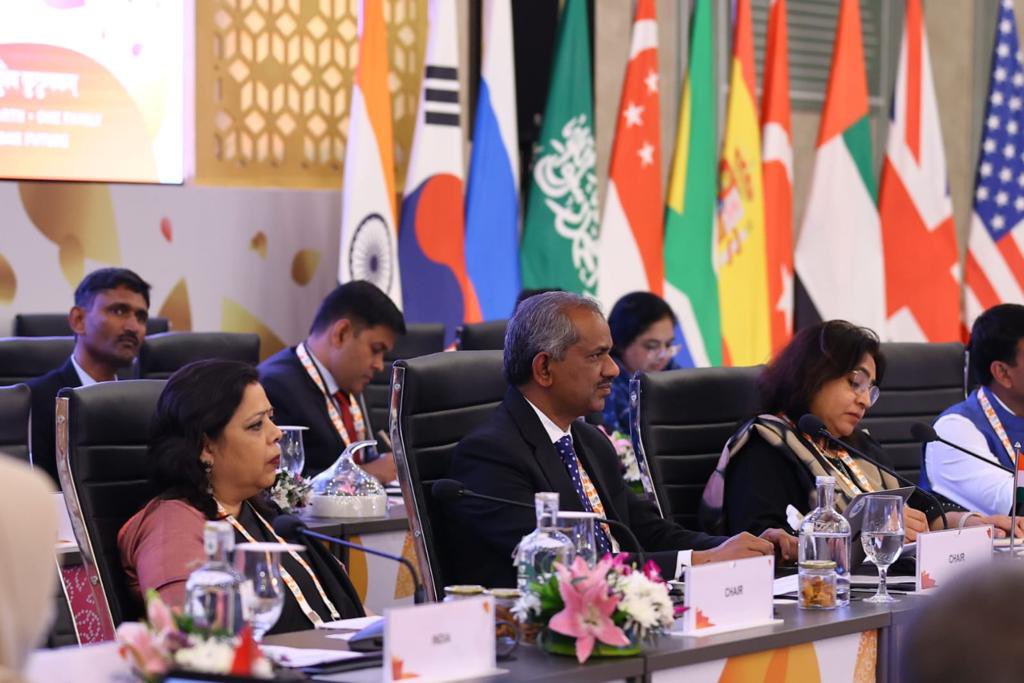The theme of India’s G20 Presidency is ‘One Earth, One Family, One Future…reports Asian Lite News
The Group of 20 (G20) environment and climate ministers “resolve[d] to pursue environmentally sustainable and inclusive economic growth and development” in line with the 2030 Agenda for Sustainable Development, the Paris Agreement on climate change, the Kunming-Montreal Global Biodiversity Framework (GBF), the objective of achieving land degradation neutrality (LDN) by 2030, and commitments to address pollution. They also adopted a set of voluntary principles on sustainable and resilient ocean-based economy.
In an outcome document, the ministers express their determination to avoid siloed actions to address environmental crises and challenges and “acknowledge the urgent need to strengthen policies and mobilize financing.” They further underscore that “eradicating poverty in all its forms and dimensions, including extreme poverty, is indispensable for sustainable and climate resilient development pathways.”
On accelerating climate action, the ministers emphasize the importance of the first Global Stocktake (GST) at the 2023 UN Climate Change Conference (UNFCCC COP 28) to assess collective progress towards achieving the goals of the Paris Agreement.
They underscore the need for “enhancing action and support towards achieving the global goal on adaptation (GGA)” and commit to “work to successfully implement” funding arrangements on loss and damage. Highlighting the continued importance of public, grant-based, and concessional finance to enable climate action, they also call for accelerated, adequate, and additional mobilization of climate finance from Multilateral Development Banks (MDBs), International Financing Institutions (IFIs), the private sector, and other sources.
Annexed to the outcome document are the ‘Chennai High Level Principles for a Sustainable and Resilient Blue/Ocean-based Economy’ that, ministers agreed, “may be implemented by the G20 members on a voluntary basis, based on national circumstances and priorities.” Guided by these principles, the G20 members will: prioritize Ocean health; acknowledge and address the links between the Ocean and climate; promote social and intergenerational equity and gender equality; and promote the use of marine spatial planning. They will also: leverage science, technology, and innovation; recognize, protect, and utilize Indigenous and traditional knowledge; establish and implement monitoring and evaluation mechanisms; strengthen international cooperation; and enhance ocean finance.
The theme of India’s G20 Presidency is ‘One Earth, One Family, One Future.’ The G20 members are Argentina, Australia, Brazil, Canada, China, France, Germany, India, Indonesia, Italy, Japan, the Republic of Korea, Mexico, the Russian Federation, Saudi Arabia, South Africa, Türkiye, the UK, the US, and the EU.

Leave a Reply